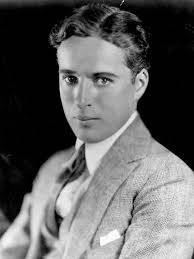Charlie Chaplin, a pioneering figure in cinema history, remains one of the most influential and celebrated actors, directors, and comedians of the silent film era. Born Charles Spencer Chaplin on April 16, 1889, in London, England, his life and career were shaped by hardship, resilience, and an unparalleled gift for physical comedy and storytelling.
Chaplin's early years were marked by poverty and instability. His parents, both performers in the music hall tradition, struggled with poverty, and Chaplin's father abandoned the family when Charlie was just a child. His mother, Hannah Chaplin, struggled with mental illness, and Chaplin and his older half-brother Sydney spent time in workhouses and with various relatives as they grew up.
Chaplin's introduction to the stage came through his mother's work in the music hall, where he began performing as a child to support the family financially. His natural talent for pantomime and comedic timing quickly became apparent, and by his teenage years, he was touring with theater companies in England and later in the United States.
In 1913, Charlie Chaplin signed with Keystone Studios in Hollywood, where he began developing his iconic character, "The Tramp." Dressed in a shabby suit, oversized shoes, and a bowler hat, the Tramp became Chaplin's signature persona—a lovable yet hapless figure navigating the challenges of everyday life with humor, grace, and resilience.
Chaplin's rise to fame was meteoric, and he soon gained international acclaim for his silent films, which blended comedy with social commentary. His films, including classics such as "The Kid" (1921), "City Lights" (1931), and "Modern Times" (1936), showcased his ability to blend slapstick humor with poignant storytelling, addressing themes of poverty, class struggle, and the human condition.
Beyond his on-screen persona, Chaplin was also a visionary filmmaker and director. He was one of the pioneers of film storytelling techniques, experimenting with narrative structure, visual storytelling, and the integration of music into silent films. His meticulous attention to detail and perfectionism in filmmaking set new standards for the industry and influenced generations of filmmakers to come.
In addition to his success in silent films, Charlie Chaplin successfully transitioned into the era of "talkies" with the release of "The Great Dictator" (1940), a bold political satire that critiqued totalitarianism and fascism. The film marked Chaplin's first speaking role on screen and solidified his reputation as a filmmaker unafraid to tackle controversial subjects.
Throughout his career, Charlie Chaplin's personal life was often as dramatic as his films. He experienced multiple marriages and controversies, including political scrutiny during the Red Scare era in the United States, which led to his departure from the country and eventual resettlement in Switzerland.
In conclusion, Charlie Chaplin's legacy endures as a testament to the power of cinema to entertain, inspire, and provoke thought. His contributions to film and comedy continue to resonate with audiences worldwide, transcending language and cultural barriers. Chaplin's ability to capture the human experience with humor and compassion cemented his status as a cultural icon and solidified his place in the pantheon of cinema legends.



No comments yet
Be the first to share your thoughts!